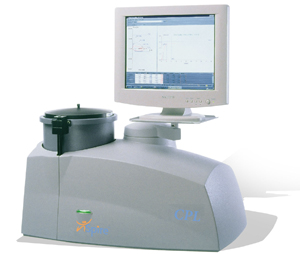Pulmonary Disease and Internal Medicine
You cannot do a complete history and physical in 20 minutes, nor can you do a 30 minute follow-up visit in 6 minutes, no matter what HMO executives say.
Computers are helpful with certain tasks but are not a substitute for "face time" with your doctor. As a practitioner of internal medicine in New York, I believe it is essential that your doctor understand your concerns. It is also essential that you understand your doctor's concerns. A symptom that may not seem important to you may worry your doctor as a potential symptom of a dangerous condition. So a conversation that takes place in a doctor's consulting room requires mutual respect, mutual attention and enough time for mutual understanding to take place.
Many patients come to my New York internist practice because they have become impatient with large multi specialty groups where they see one "provider" for regular follow up visits, another if they have an urgent problem, and another if they go to the hospital. Sometimes, even for routine follow up care, there is a "provider covering." The patient does not know most of these "providers," many of whom are not even doctors, and the "providers" don't know them. I don't believe this is good medical care, even if the "providers" are skilled and doing their best.
Copyright 2012: Peter Ebenstein, M.D. | Internist New York | All rights reserved.
12 Greenridge Ave. Suite 204, White Plains, NY 10605 914-287-0010
A New York Pulmonologist's Philosophy
Why go to a doctor? You can look up your symptoms on the internet. Wikipedia will tell you all about any condition you can name. The Mayo Clinic has a nice informational web site. There are blood tests, MRI scans, all sorts of machines that provide diagnostic data. What does a doctor do? The answer is that you are a human with a problem about which you are concerned. What exactly is the problem and why exactly are you concerned? A computer will never figure this out.
If you need to go to a specialist, you and your doctor must remain in charge. As a pulmonologist in New York and an internist I know and understand that specialists do the things that are done in that specialty. Cardiologists do echocardiograms and stress tests. Gastroenterologists do colonoscopy and gastroscopy. Neurologists do nerve conduction studies, CT scans and MRI scans. If you and your doctor don't remain in charge, you are like a leaf in the wind, blowing from one specialist to another with no sense of where you are going or why you started on this journey in the first place. You go from one test to another, one specialist to another, one x-ray to another until, in the worst case, the people taking care of you have lost sight of why you are there.
It is most important that you take charge of your own health. I am here to help you do that. To start with some simple lifestyle advice, click on "Healthy Lifestyles" below. To review some tests and treaments which are often "overprescribed," you may wish to go to www.choosingwisely.org.










